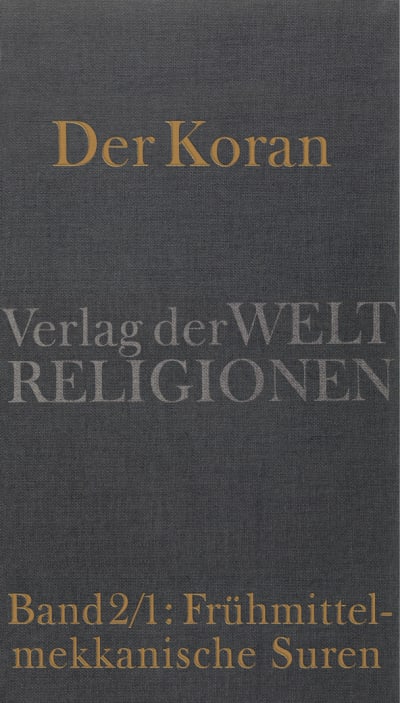The Qur'an: Text and Commentary
Is the Qur'an a purely Islamic text and therefore foreign to us? Or is it not rather a new and unconventional voice in the concert of late antiquity debates in which the theological foundations of the Jewish and Christian religion were also laid down? It is not the Qur'an that must be reshaped as a result of new manuscript findings or with the help of linguistic experiments – it is our perspective of the Qur'an that needs to undergo a decisive change, if we wish to...
Is the Qur'an a purely Islamic text and therefore foreign to us? Or is it not rather a new and unconventional voice in the concert of late antiquity debates in which the theological foundations of the Jewish and Christian religion were also laid down? It is not the Qur'an that must be reshaped as a result of new manuscript findings or with the help of linguistic experiments – it is our perspective of the Qur'an that needs to undergo a decisive change, if we wish to seek out its revolutionary originality.
Internationally renowned Arabist Angelika Neuwirth has created her Qur'an translation in five volumes. The present volume focuses on the suras of the early middle Meccan period. Angelika Neuwirth approaches the text of the Qur'an with a historical-critical methodology. Her strategy therefore corresponds to the scientific handling of the Bible, as established since The Enlightenment. Specifically, this means that the editor deals with the suras in chronological order of their propagation, as widely assumed since the 19th century. This approach makes it possible to trace the development of the topics of propagation, the establishment of a community, the organisation of a Muslim practice of piety etc. The historic-critical methodology instruments used by western philologists on the Qur'an specifically consists of: text criticism (the issue of the oldest text), literary criticism (identification of later additions to the oldest suras) and history of tradition (in particular the question of ›inter texts‹, which allow the collective knowledge background from annunciator and his first audience to be reconstructed and therefore enables a historic understanding of the original message).Angelika Neuwirth’s approach is a milestone in the history of research: The consequential historical-critical interpretation of the Qur'an ranks it together with the tradition that began in The Enlightenment of critical text analysis, as applied initially to Biblical Sciences and later to Judaic Studies and also to the ›Holy Books‹ of Christianity and Judaism. In a comparable manner, Qur'an Sciences are now becoming dialogue-worthy within the framework of academic studies of canonical books in Christianity, Islam and Judaism.
»As far as richness of material and the range of the philological insights that have been brought together are concerned, this annotation surpasses all comparable works in a European language.« Tilman Nagel, Neue Zürcher Zeitung
»Arabist Angelika Neuwirth continues with her great Qur'an commentary and carries out the urgently required fundamental research.« Dirk Pilz, Frankfurter Rundschau
»As far as richness of material and the range of the philological insights that have been brought together are concerned, this annotation surpasses all comparable works in a European language.« Tilman Nagel, Neue Zürcher Zeitung
»Arabist Angelika Neuwirth continues with her great Qur'an commentary and carries out the urgently required fundamental research.« Dirk Pilz, Frankfurter Rundschau
OTHER PUBLICATIONS

The Qur'an and Late Antiquity
English world rights (Oxford UP), Arabic world rights (Red Sea Bookstores)
